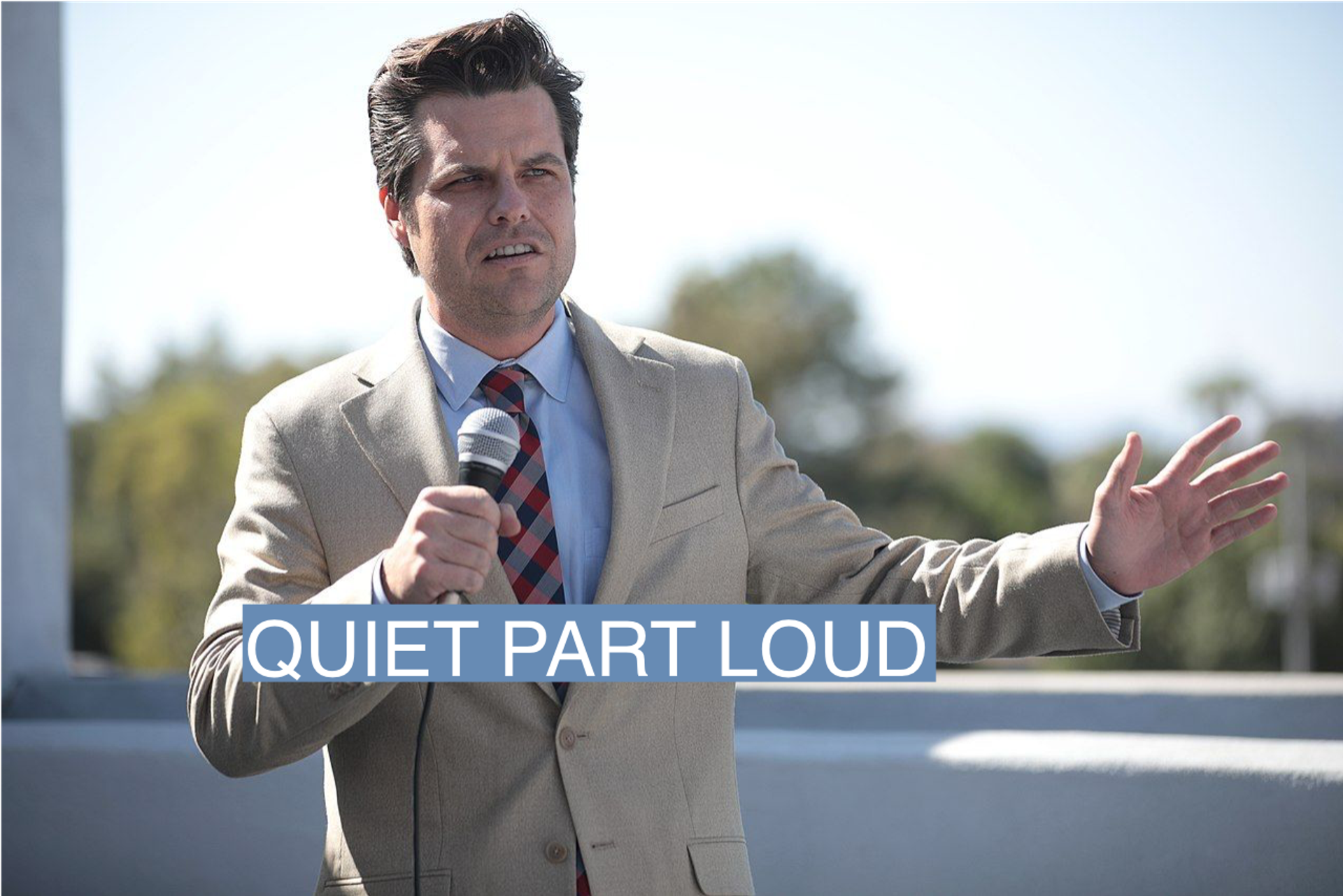The News
Republicans have often bristled at accusations that they are resorting to hostage tactics by refusing to raise the federal debt ceiling without securing spending cuts.
But on Tuesday, Florida Rep. Matt Gaetz leaned into the charge as he explained to reporters that he and his fellow hardline conservatives would likely reject any sort of compromise deal that watered down the party-line bill Republicans passed through the house.
“I think my conservative colleagues for the most part support Limit, Save, Grow, and they don’t feel like we should negotiate with our hostage,” Gaetz told Semafor.
Know More
The comments were ultimately a reminder that any plausible debt ceiling deal capable of passing both chambers of Congress will likely need to attract a large number of Democrats to make up for hard-right defections in the House. But a compromise still seemed far off by the end of Tuesday, with both sides digging in on key demands and making little overall progress.
How much to cut the budget remains a major sticking point. The White House is still pushing merely to freeze federal spending levels going into next year, with a modest 1% increase in 2025, per a source briefed on the ongoing talks. But Republicans are insisting on cutting non-defense discretionary spending below this year’s level.
“The highest priority for the Republican conference on spending would be year-one savings,” Rep. Dusty Johnson, R-S.D. told Semafor.
There has been some limited headway. The person briefed on discussions said there’s been an agreement to rescind as much as $30 billion in unused COVID-19 funding. But everything else is still being hammered out, the person said.
“House Republicans have essentially taken the position ‘that is my way or the highway,’” House Minority Leader Hakeem Jeffries told reporters. “That is not a road to a bipartisan resolution.”
Louisiana Rep. Garret Graves, who has served as House Speaker Kevin McCarthy’s point man on talks, said negotiations have been “frustrating and there have been times when trust has been called into question.” At the same time, he acknowledged each camp would have to cede ground. “If we ultimately reach a deal then I think you’ll see concessions on both sides,” he said.
The speaker has had to watch his party’s right flank after agreeing to a rule that allows any House member to call a snap no-confidence vote against him. (Gaetz on Tuesday credited the rule for creating “the best version of Speaker McCarthy.”)
“Even if McCarthy can’t get the votes of the Freedom Caucus for a final deal and he and Democrats put it over the finish line, he has to do enough to show that he listened to the Freedom Caucus and got as much as he could in order to protect his speakership,” Brian Riedl, a budget expert at the right-leaning Manhattan Institute, told Semafor.
But McCarthy may soon have a bit more breathing room to make a deal. On Wednesday, Minnesota Rep. Dean Philips told Bloomberg there were at least 10 Democrats who would vote to back McCarthy if Republicans attempted to oust him. Whether McCarthy would accept the help is, as of now, unclear.
Kadia Goba contributed reporting.
